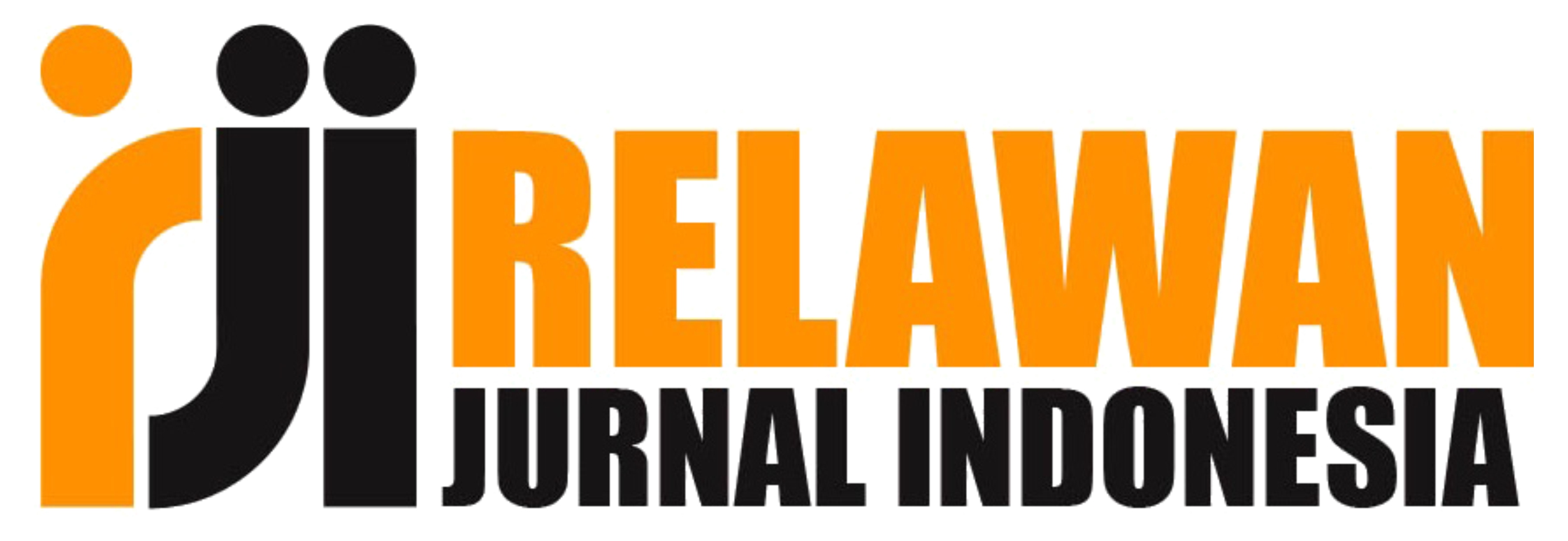Peran Guru dalam implementasi sistem among pada pembelajaran PPKn Kelas IV SD Negeri Kanggotan Pleret Bantul
DOI:
https://doi.org/10.61476/cxqb8a56Keywords:
Teacher Role, Among System Implementation, PPKn LearningAbstract
The Teacher's Role in the Implementation of the Among System in Class IV PPKn Learning at SD Negeri Kmember Pleret Bantul. Thesis of the Elementary School Teacher Education Study Program, Faculty of Teacher Training and Education, Tamansiswa University, Yogyakarta.The purpose of this study was to describe the teacher's role in the implementation of the among system in the fourth grade PPKn SD Negeri Pleret Bantul. To find out the supporting and inhibiting factors of the teacher's role in the implementation of the among system in class IV PPKn SD Negeri Pleret Bantul. To find out the impact of the teacher's role in the implementation of the among system in class IV PPKn learning at SD Negeri Kmember Pleret Bantul. This research was conducted at Kmember Pleret Public Elementary School, Bantul. This research was conducted in February 2023. The subjects in this study were school principals, grade IV teachers and grade IV students. This data collection technique uses observation techniques, interviews and documentation. The research instrument is an observation guide, interview guide and documentation guide. Test the validity of the data using source triangulation and technical triangulation and using reference materials. Data analysis techniques in this study used Miles and Huberman's analysis which consisted of data collection, data reduction, data presentation and data withdrawal. The results of the study show that (1) the role of the teacher in implementing the among system in Civics learning is very important, namely the teacher as a teacher or educator, the teacher as a guide, the teacher as a mediator and facilitator, the teacher as an evaluator, the teacher as an example and a good role model, and being able to protect , provide direction, encouragement or motivation and realize the independent spirit of students in learning according to the interests and talents of students. (2) Factors supporting the teacher's role in implementing the among system are the competence or ability of the teacher in teaching, the teacher's understanding of the among system, the teacher's personality or level of concern for students, the parents' trust in the teacher and the support from the school principal. (3) The inhibiting factors include the level of care and patience in educating students, the limited time used and the child's willingness to learn. (4) The impact is that learning objectives will be successfully achieved, student character can develop optimally, students can feel comfortable in learning activities in the school environment, students will feel more enthusiastic about learning and feel happy in participating in learning activities so that the School Movement is Fun (GSM) can be achieved well.
Downloads
References
Apride Pane, M. D. (2017). Belajar dan Pembelajaran. Jurnal Kajian Ilmu-Ilmu Keislaman, 03, 313-332.
Arianti. (2018). Peran Guru dalam Meningkatkan Motivasi Belajar Siswa. Jurnal Kependidikan, 12, 117-134.
Buchari, A. (2018). Peran Guru dalam Pengelolaan Pembelajaran. Jurnal Ilmiah Iqra, 12, 106-124.
Godeliva Umbu Nono, dkk. (2018). Hubungan Mata Pelajaran PPKn Terhadap Peningkatan Karakter Siswa. Jurnal Moral Kemasyarakatan, 3, 52-56.
Ihsan. (2017). Kecenderungan Global dalam Proses Pembelajaran Pendidikan Pancasila dan Kewarganegaraan Disekolah. Jurnal Pancasila dan Kewarganegaraan, 2, 49-58.
Ina Magdalena, d. (2021). Implementasi Model Pembelajaran Daring Pada Pandemi Covid-19 Dikelas III SDN Sindangsari III. Jurnal Pendidikan dan Dakwah, 3, 1-10.
Ketamansiswaan, T. D. (2016). Materi Kuliah Ketamansiswaan. Yogyakarta.
Kirom, A. (2017). Peran Guru dan Peserta Didik dalam Proses Pembelajaran Berbasis Multikultural. Jurnal Pendidikan Agama Islam, 3, 69-80.
Magdalena. (2020). Pembelajaran Pendidikan Kewarganegaraan Disekolah Dasar Negeri Bonjong 3 Pinang. Jurnal Pendidikan dan Sains, 2, 419-430.
Meita Sekar Sari, M. Z. (2019). Pengaruh Akuntabilitas, Pengetahuan dan Pengalaman Pegawai Negeri Sipil Beserta Kelompok Masyarakat Terhadap Kualitas Pengelola Dana Kelurahan Dilingkungan Kecamatan Langkapura. Jurnal Ekonomi, 21, 308-315.
Muhamad Fikri Zulfikar, D. A. (2021). Pentingnya Pendidikan Kewarganegaraan Untuk Membangun Karakter Bangsa. Jurnal PEKAN, 6, 104-115.
Mutiaramses, N. I. (2021). Peran Guru dalam Pengelolaan Kelas Terhadap Hasil Belajar Siswa Sekolah Dasar. Jurnal Ilmiah Pendidikan Dasar, 06, 43-48.
Nasional, D. P. (2003). Undang-Undang Nomor 20 Tahun 2003,Tentang Sistem Pendidikan Nasional. Jakarta: Depdiknas.
Parawangsa. (2021). Hakikat Pendidikan Kewarganegaraan Disekolah Dasar (SD). Jurnal Pendidikan Tanbusai, 5, 850-854.
Purwandari, N. R. (2016). Implementasi Sistem Among dalam Penanaman Karakter di Kelas IV SD Taman Muda Ibu Pawiyatan Tamansiswa Yogyakarta.Yogyakarta :UNY : Skripsi, Tidak diterbitkan.
Putri, S. M. (2019). Implementasi Sistem Among untuk Menumbuhkan Karakter Mandiri pada Pembelajaran Tematik Peserta Didik Kelas IV SD Tamansiswa Jetis Yogyakarta. Skripsi, Tidak diterbitkan: Yogyakarta: FKIP UST.
Sari, C. R. (2019). Penerapan Sistem Among di Sekolah Dasar. Prosding Seminar Nasional PGSD, 97-101.
SISDIKNAS, U.-U. (2008). Undang- Undang Sistem Pendidikan Nasional RI No.20 Tahun 2003. Jakarta: Sinar Grafika.
Sugiyono. (2016). Metode Penelitian Kuantitatif, Kualitatif dan R&D. Bandung: Alfabeta.
Susanto, A. (2013). Teori Belajar dan Pembelajaran di Sekolah Dasar. Jakarta: Kencana.
Tauchid, M. (2011). Perjuangan dan Ajaran Hidup Ki Hadjar Dewantara. Yogyakarta: Majelis Luhur Persatuan Tamansiswa.
Telaubanua, F. (2019). Pembelajaran Pendidikan Pancasila dan Kewarganegaraan Berbasis E-Learning. Jurnal Warta Edisi: 62, 14-23.
Wangit, M. N. (2008). Masih Bertahankah Sistem Among Pada Masa Kini? Kajian Konsep dan Praktik Pendidikan. Yogyakarta: UNY.
Wangit, M. N. (2009). Sistem Among Pada Masa Kini: Kajian Konsep dan Praktik Pendidikan. Jurnal Kependidikan, 39, 129-140.
Yenita Heri Susanto, A. J. (2017). Pemahaman dan Penerapan Sistem Among Kihadjar Dewantara pada Usia Wiraga. Jurnal Ilmiah Pisikologi, 2, 119-127.
Zein, M. (2016). Peran Guru dalam Pengembangan Pembelajaran. Jurnal Pendidikan, 5, 274-285.
Published
Issue
Section
License
Copyright (c) 2023 Thomas Leo Orbiyanto, Chairiyah, Irfan Adi Nugroho (Author)

This work is licensed under a Creative Commons Attribution-ShareAlike 4.0 International License.












